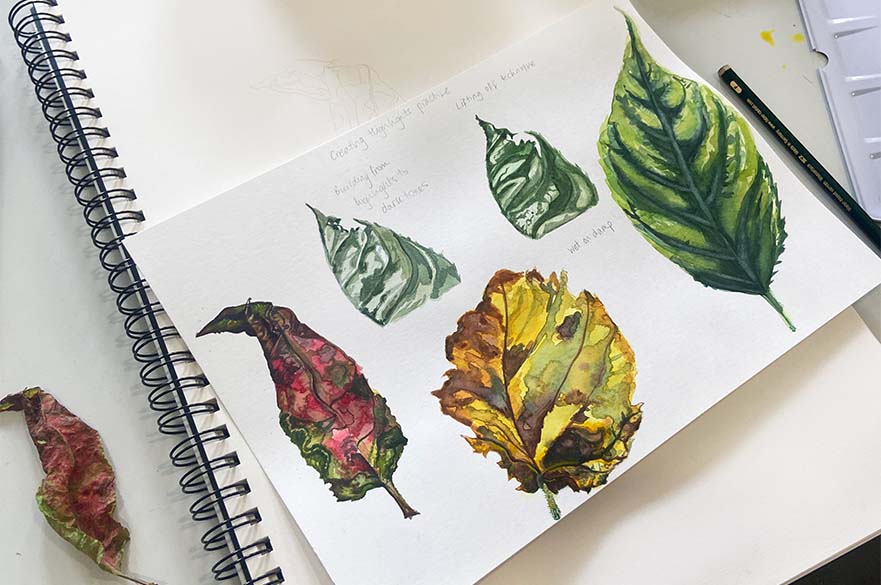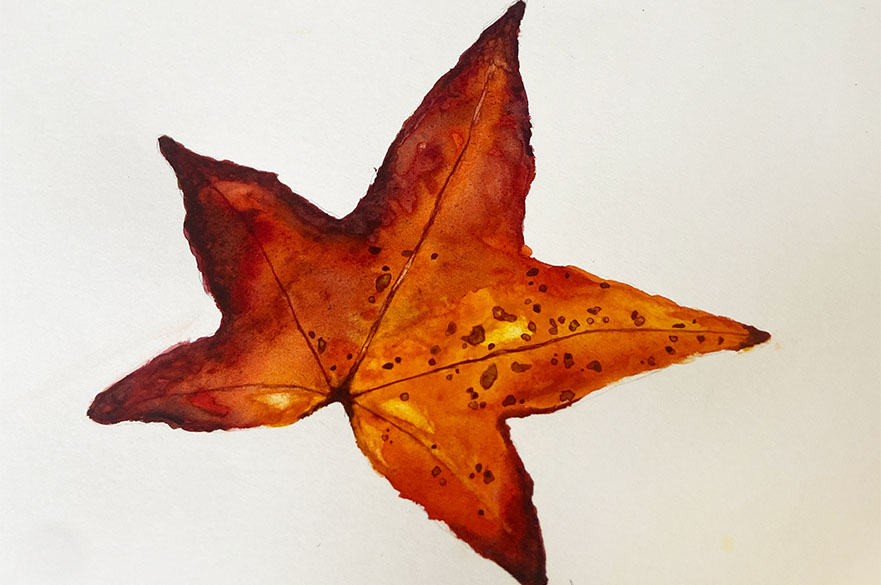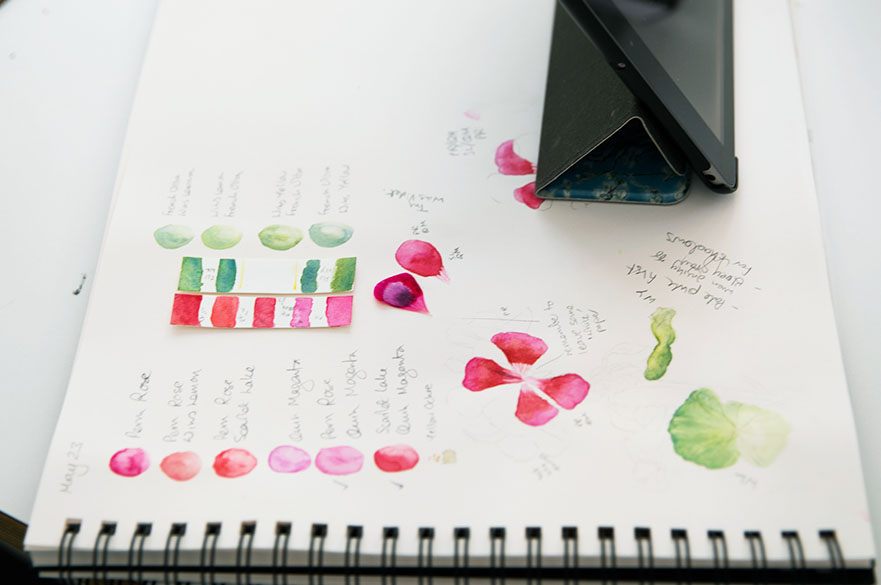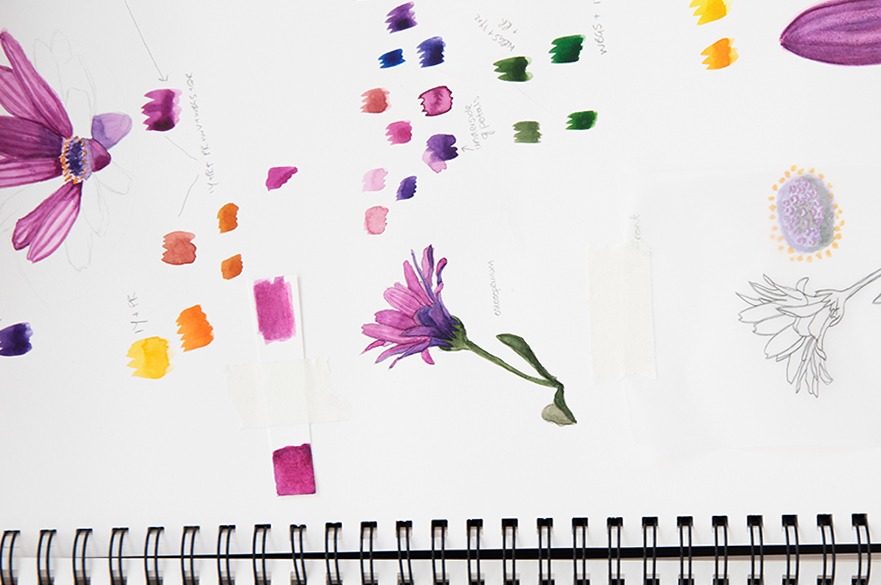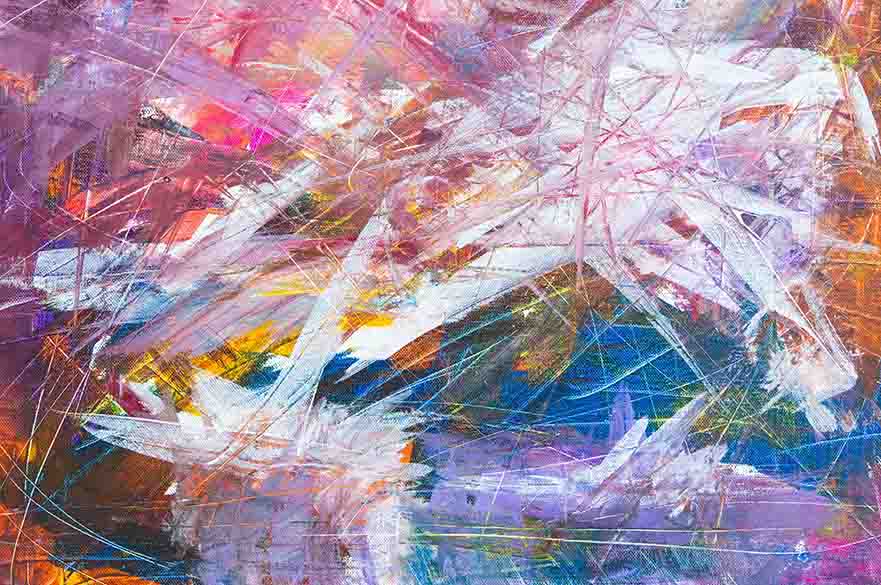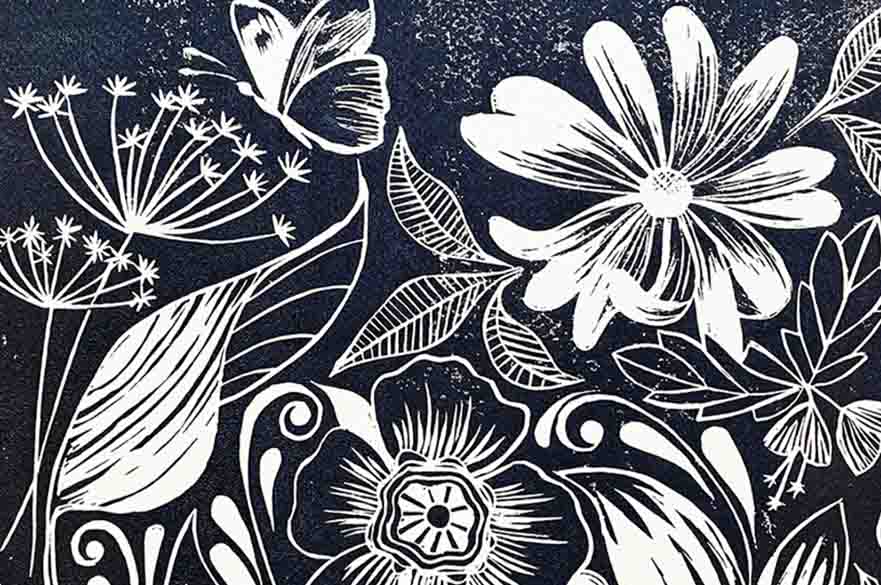Botanical Drawing and Illustration for Beginners
- Level(s) of Study: Short course
- Course Fee:
£435 (Summer School 2025) or £460
- Start Date(s): 14 July 2025, 1 November 2025, 21 February 2026
- Duration: Saturdays, 10 am to 4 pm, five weeks or Monday to Friday 10 am - 4 pm, one week
- Study Mode(s): Part-time
- Campus: City Campus
- Entry Requirements: More information
Introduction:
Course dates:
3 - 31 May 2025, Saturdays, 10 am to 4 pm
14 - 18 July 2025, Monday to Friday 10 am - 4 pm
1 - 29 November 2025, Saturdays 10 am - 4 pm
21 February - 21 March 2026, Saturdays 10 am - 4 pm
This course is aimed at beginners and will develop your knowledge and skills in the field of botanical art and illustration.
Typically, the course will appeal to those who have an interest in the natural world either as a result of hobbies (gardening, horticulture or painting) or through employment (landscape designers, conservationists and botanists).
Surprisingly, botanical illustration courses are few and far between, and finding experienced tutors in this field is limited.
So, if you’ve struggled to the find the right course and want to take your art in a new direction, this will be perfect.
-
You’ll be part of a design community in our creative studio culture; one that promotes discussion and collaboration, and encourages experimentation and the constant swapping of ideas.
-
With a limited class size you'll have the one-to-one attention you need to ensure you leave with the skills to continue developing your designs at home or work.
-
Benefit from learning with an experienced tutor who has established links to the profession and significant experience working in varied practices.
-
On successful completion of the course you will receive a certificate of attendance.
Here's what our previous attendees said:
'Dawn was fantastic, inspiring and enthusiastic. There wasn't enough time in the day, it was so good, I could have done more of everything. Highly recommended.' TG
'Dawn is a great teacher, so enthusiastic and knowledgeable about the subject. The classes are fun and informative - thoroughly recommend this course! KB
‘Excellent friendly and professional tutor, Dawn was very encouraging as I was trying to decide if I liked drawing and want to do more.' RS
‘Dawn is a brilliant, patient and encouraging tutor. I love flowers and wanted to improve my painting skills, I really got to look at the flowers, tried colour mixing and trying different techniques that really helped with watercolour washes. Thank you so much.' CF
'Dawn is a fantastic tutor - very clear with her instructions, extremely informative, enabling and very amusing! She managed to make Botanical Art enthralling! GB
'An excellent course. I left with a much better understanding of the medium and the whole process of botanical drawing and painting. Can't wait for a follow-up course, but for now I have plenty of exercises in drawing and colour mixing to do to put everything Dawn taught me into practice. Dawn was patient, supportive and generous with her knowledge and the group was lovely. Thank you Dawn.'
'This has been one of the most enjoyable courses I have ever done. It has given me confidence in my artistic ability and has been a boost to my mental wellbeing. I loved it.' JB
'This course has been a joy - Dawn has given me so much inspiration, information, and encouragement, I couldn’t have asked for more! HF
'From doing this course I’ve realised that Botanical Drawing is a fantastic skill to have!'
What you’ll study
On this course, you will:
- learn about the history of botanical art and illustration, and the key influencers
- work from natural subjects indoors
- spend short periods in Nottingham’s arboretum (if weather permits)
- practice drawing, colour matching and composition skills
- learn how to represent the illusion of 3D form on a 2D surface
- explore surface pattern and textures
- apply basic colour theory, colour relationships and tonal values
- apply watercolour tonally to achieve perspective
- gain an understanding of the different forms of composition (such as movement, balance and aerial perspective) within the arrangement of your subject matter.
The course is predominantly practical, ensuring that your individual learning needs are met via practical demonstrations, group and individual tuition, written material and critiques.
In addition to the studio time, you’ll also be asked to complete manageable practical homework assignments, and preparation for the next class, to reinforce your learning.
By the end of the course, you’ll be able to demonstrate how to observe and draw botanical subjects accurately, using mark making descriptively and sensitively. In addition to your new skills, you’ll also experience the positive impact of botanical drawing on well-being and mindfulness.
- History of Botanical Illustration, including key influencers
- Understanding the effect of light on subject form and surface texture
- Tonal studies in graphite and watercolour
- How to draw botanical subjects accurately
- Basic botany
- Continuation of accurate drawing skills
- Basic colour theories, colour relationships and tonal values
- Watercolour application and techniques
- Basic Botany
- Leaves
- Basic Botany
- Mixing Greens
- Composition & the arrangement of subject matter
- Final subject – delegate’s choice
- Unifying observation, medium application and botanical accuracy
- Critique/planning for next stages in learning
Student Work
How you’re taught
This is a practical course taught in person based at the Nottingham Trent University city campus.
Contact hours
You will receive 25 contact hours of quality tuition with an experienced tutor.
Careers and employability
The course is designed to equip you with the foundational skills needed for botanical illustration, from sketching simple plant forms to understanding the essential techniques used by professional illustrators. On successful completion of the course you will receive a certificate of attendance, which will further enhance your CV.
After the course, you will be able to progress onto the Advanced Botanical Drawing and Illustration course.
Campus and facilities
You will be based in the School of Art and Design on the City Campus.
You'll find bright drawing and painting studio and workshop spaces to develop your ideas and create exciting work.
You will receive an email one week before the course starts with joining instructions on where to go for the first day.
You’ll also have access to our library to use outside of your short course; whilst you can’t reserve or take away books, you are welcome to use them as a resource for research and referencing.
Entry requirements
Level: Beginner
Entry requirements: No previous drawing or painting experience needed.
You must be over the age of 18 to attend this course.
Fees and funding
The fee for this course is £435 (Summer School 2025) or £460.
Payment is due at the time of booking - ask us if you'd prefer an invoice sent to your company.
Secure your place with a deposit - If you're booking more than two months before the course starts, we can accept a £200 deposit to secure your place, and the balance is due one month before the course starts.
Your course fees cover the cost of studies, including most materials to create your designs and other great benefits such as the use of our modern library and free use of the IT equipment and software on the campus during your course.
Please bring with you to the first session:
- A3 sketchbook - the paper should be as white and smooth as possible. The ideal sketchbook would be Daler Rowney Ebony sketchbook.
- Graphite pencils, such as Faber Castell 9000 or Staedtler Lumograph, grades 4H, 2H, F or HB, B, 2B.
Your tutor will provide watercolour paper at the start of the course, to get you going.
You will need to provide paper as the course progresses, and your tutor can advise you on the most suitable paper to get during the first session.
After the first session, you will also need:
- Watercolour paints – individual pans of Artists’ Quality Winsor & Newton paint (not Cotman). There is no need to buy a set of paints, please buy individual colours of:
- Blues - Winsor Blue Green Shade, Winsor Blue Red Shade
- Yellows: Transparante Yellow, Indian Yellow
- Reds: Scarlet Lake, Permanent Rose
- Purple: Winsor Violet Dioxazine
- Sable or synthetic pointed round paint brushes (these are good for laying down washes and detailed work). We’d suggest getting one of each of these sizes: Size 6, Size 4, Size 2, Size 0.
- A Paint palette – either a daisy ceramic palette or a white household china side plate.
- Travel lamp with daylight bulb.
If you would like to do some pre-course research, you can look at:
- Botanical Art Techniques by The American Society of Botanical Artists
- Botanical Illustration by Valerie Oxley
- Botanical Illustration From Life by Isik Güner
- Website: https://www.botanicalartandartists.com/
You can read the terms and conditions of booking here.
Need accommodation for a week long summer course?
Accommodation can be booked separately to the course; the rooms are only a few minutes’ walk from our studios and classrooms, and cost £259 per week.
These are single rooms with a private bathroom in shared apartments in Nottingham Trent University’s city campus accommodation, which is ideal if you're looking to be based in Nottingham's lively city centre and want an economical place to stay.
Find out more and book your accommodation here.
How to apply
You can book your place via the NTU online store:
3 - 31 May 2025, Saturdays, 10 am to 4 pm
14 - 18 July 2025, Monday to Friday 10 am - 4 pm
1 - 29 November 2025, Saturdays 10 am - 4 pm
21 February - 21 March 2026, Saturdays 10 am - 4 pm
Browse all our short courses in fine art.
Any questions?
Contact the short course team:
Email: creativeshortcourses@ntu.ac.uk
Telephone: +44 (0)115 848 2813
